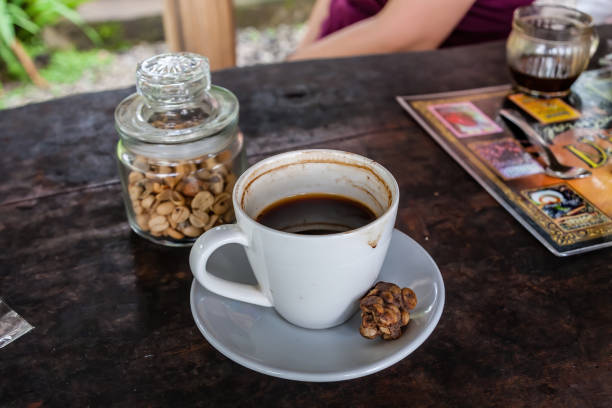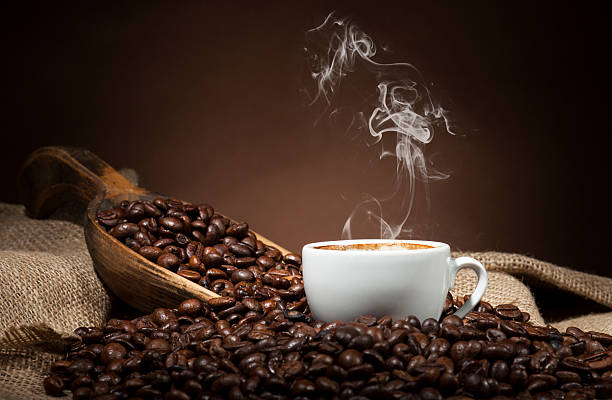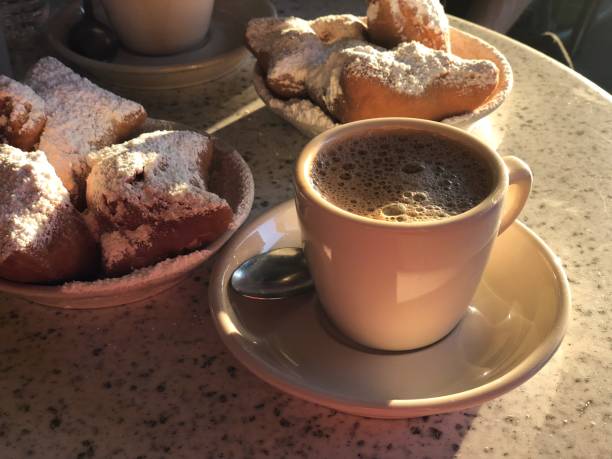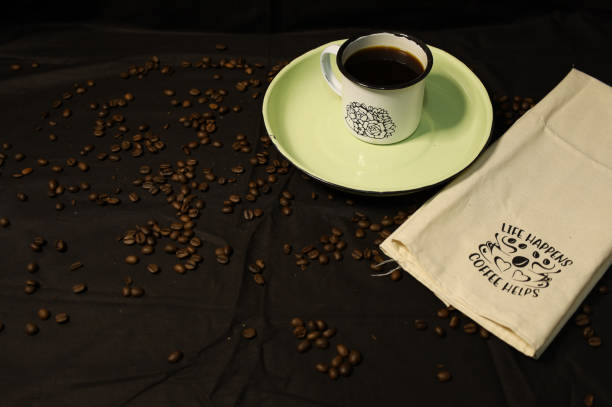Written By: Sherry Harris
Coffee has evolved far beyond being just a morning pick-me-up. For centuries, it has served as a cultural symbol, a ritual, and even a status statement. In many countries, sipping a cup of coffee is not only about caffeine but also about tradition, hospitality, and lifestyle. Just like wine has its terroirs and tasting notes, coffee too has become a global obsession for connoisseurs seeking rare flavors and experiences.
Luxury coffee culture emerged as people began to appreciate the artistry behind brewing and the exclusivity of rare beans. High-end cafés now offer experiences where coffee is paired with desserts like fine dining wines, complete with professional tasting notes. What makes it fascinating is that some coffees command prices higher than luxury wines or champagnes, not just because of their rarity but also due to their unique story and taste.
Table of Contents
What Makes Coffee Expensive?
You may wonder, what exactly makes some coffee cost as much as gold? The truth lies in a mix of nature, process, and demand. Expensive coffee is rarely about branding alone—it’s about the journey from bean to cup.
Rare Beans and Unique Origins
Some coffee beans grow only in very specific climates and soil conditions. For example, Panama’s Geisha coffee is famous for its delicate floral and jasmine notes, which can’t be replicated anywhere else. Just like wine grapes thrive in certain vineyards, coffee beans develop unique flavors depending on altitude, soil, and microclimate. These beans are cultivated in limited regions, which naturally drives up their exclusivity and cost.
Complex Harvesting and Processing Methods
The way coffee is harvested and processed also affects its value. Some of the most expensive coffees are handpicked, with farmers selecting only the ripest cherries. Others, like Kopi Luwak or Black Ivory coffee, undergo unique “animal digestion” processes that alter the chemical composition of the beans, enhancing flavor. These methods are labor-intensive, require patience, and cannot be mass-produced—making each bean rare and costly.
Limited Availability and Exclusivity
Expensive coffee is often produced in very small batches. Some farms release only a few hundred pounds per year, auctioning them off to the highest bidders. Collectors, high-end restaurants, and luxury hotels compete for these beans, further driving up the price. The exclusivity factor makes owning or tasting these coffees a status symbol—similar to rare art or luxury watches.
In short, what makes coffee expensive is not just the bean itself, but the story, rarity, and effort behind it.
Kopi Luwak – The Famous Civet Coffee
Kopi Luwak, often called “civet coffee,” is probably the most well-known luxury coffee in the world. Originating from Indonesia, this coffee undergoes one of the most unusual processing methods in the world: the beans are eaten and digested by a civet cat before being collected, cleaned, and roasted.
The Unique Process Behind Kopi Luwak
The civet cat plays a crucial role. When it eats ripe coffee cherries, the digestive enzymes break down proteins that typically make coffee bitter. The beans pass through the civet’s system mostly intact but altered in flavor. After collection and cleaning, they are roasted into one of the most unique-tasting coffees on the planet—smooth, earthy, and less acidic.
Why It Is Controversial and Luxurious
Kopi Luwak has attracted criticism due to unethical practices in some farms, where civets are caged and force-fed cherries. Authentic, ethical Kopi Luwak is extremely rare, and its high price reflects both the difficulty of sourcing it responsibly and the uniqueness of its taste. When produced naturally, it remains one of the most luxurious and sought-after coffees worldwide.
Price Range and Demand in Luxury Markets
A pound of genuine, ethically sourced Kopi Luwak can cost anywhere between $250 to $1,200. A single cup in a luxury café may be priced at $50–$100. Despite the controversies, it remains an iconic symbol of rare coffee culture, often featured in documentaries and luxury travel experiences.

Black Ivory Coffee – Elephant’s Touch of Luxury
If Kopi Luwak isn’t surprising enough, Black Ivory Coffee takes things to another level. Produced in Thailand, this rare coffee uses elephants instead of civets in its fermentation process.
How Elephants Contribute to the Process
Elephants consume ripe Thai Arabica coffee cherries, and during digestion, the beans ferment inside their massive stomachs. Enzymes break down bitterness while enhancing smoothness and complexity. After passing through the elephants, beans are carefully collected, washed, dried, and roasted.
The Rarity and Exclusivity of Black Ivory
Unlike civets, elephants eat a massive amount of food, making it harder to recover beans. Moreover, the process is limited to small herds of elephants cared for by the Black Ivory Coffee Foundation, ensuring ethical practices. Because production yields are incredibly low—only about 150 pounds per year—this coffee is one of the rarest beverages on earth.
Cost, Taste, and Global Popularity
Black Ivory Coffee is often described as smooth, with chocolatey and malty notes, and none of the bitterness found in standard brews. Prices range from $500 to $1,500 per pound, with cups served in select luxury hotels around the world. It has become a symbol of extravagance, appealing to wealthy coffee enthusiasts and adventurous travelers alike.

Do You Know!
>> Best Low Acid Coffee: Top Brands In 2025
>> Ways of Drinking Coffee Could Help You Live Longer
Hacienda La Esmeralda – Panama’s Jewel Coffee
If animal-processed coffee sounds too unusual, there’s always Hacienda La Esmeralda—a farm in Panama producing some of the world’s most expensive and exquisite beans.
The Story of the Geisha Coffee Bean
Geisha coffee, originally from Ethiopia, found its perfect home in Panama’s highlands. The unique climate, altitude, and soil conditions of Hacienda La Esmeralda transformed Geisha beans into a global sensation. Known for its tea-like body, floral notes, and citrusy flavor, it offers a completely different experience from traditional coffees.
Record-Breaking Auctions and Global Fame
Hacienda La Esmeralda made headlines when its Geisha beans sold for over $600 per pound at auctions, setting records multiple times. Today, some batches even exceed $1,000 per pound, making it one of the priciest coffees available. Specialty roasters and collectors eagerly bid to secure small lots, pushing the value even higher.
Unique Flavor Notes and Brewing Experience
Unlike strong, dark roasts, Geisha coffee is appreciated for its delicate flavors. Tasting a cup is like savoring a fine wine—layers of jasmine, bergamot, tropical fruit, and honey emerge as you sip. The experience is less about a caffeine kick and more about appreciating its elegance and complexity.
Jamaica Blue Mountain Coffee – A Caribbean Luxury
Jamaica Blue Mountain Coffee is another legendary name in the world of luxury brews. Grown in the lush Blue Mountains of Jamaica, this coffee is prized for its mild flavor and lack of bitterness. It has become a cultural treasure, so much so that it is strictly regulated by the Coffee Industry Board of Jamaica to maintain authenticity and quality.
The Unique Growing Conditions
The Blue Mountains, reaching over 7,000 feet in elevation, provide an ideal environment for coffee cultivation. The cool climate, rich volcanic soil, and frequent rainfall slow down the growth of the beans, allowing them to develop a smooth and balanced flavor. This slow maturation process creates a cup of coffee that is exceptionally mild, with floral undertones and a naturally sweet finish.
High Demand in Japan and Global Markets
Interestingly, Japan is the largest consumer of Jamaican Blue Mountain coffee, importing up to 80% of the annual harvest. This demand has made the beans even more exclusive in other markets, where only small amounts are available. Limited supply, combined with high demand, naturally drives up its price, making it one of the most expensive coffees on the globe.
Price Range and Premium Experience
Jamaica Blue Mountain coffee can cost between $50 to $100 per pound, depending on the grade. A single cup in luxury cafés may range from $15 to $30. While it may not be as exotic in processing as Kopi Luwak or Black Ivory, its refined taste and strict quality control make it a staple in the premium coffee world.

Saint Helena Coffee – Napoleon’s Favorite Brew
Saint Helena Coffee is a hidden gem, grown on the remote island of Saint Helena in the South Atlantic Ocean. This island, famous as the place of Napoleon Bonaparte’s exile, is also home to some of the most expensive coffee in the world.
The Unique Legacy of Green-Tipped Bourbon Beans
The coffee grown here comes from the Green-Tipped Bourbon Arabica variety, originally imported from Yemen. Saint Helena’s isolation and pristine environment contribute to a flavor profile that is truly unique—light, floral, and with subtle caramel and citrus notes.
Historical Connection to Napoleon
Legend has it that Napoleon himself adored Saint Helena coffee during his exile, describing it as one of the best brews he had ever tasted. This historical association adds a layer of prestige and romanticism to its already rare profile.
Price and Rarity
Because of the island’s small size and limited agricultural output, production is tiny compared to other coffee-growing regions. A pound of Saint Helena coffee can cost $80 to $150, making it a collector’s delight for coffee enthusiasts around the world.
Hawaiian Kona Coffee – America’s Premium Bean
When it comes to the United States, Hawaiian Kona Coffee stands out as the most luxurious option. Cultivated on the fertile volcanic slopes of Mauna Loa and Hualalai in Hawaii, Kona coffee has earned a reputation for its rich, full-bodied flavor.
Perfect Conditions for Coffee Growth
The Kona region provides everything coffee plants need: volcanic soil, sunny mornings, rainy afternoons, and cool evenings. These conditions create beans that are smooth, aromatic, and balanced in acidity. Unlike harsh or overly bitter brews, Kona coffee delivers a mellow yet complex taste, often described as nutty, chocolatey, and slightly fruity.
Why Kona Coffee Is Expensive
Labor costs in Hawaii are much higher than in most coffee-growing countries, and the harvest is done by hand. This makes production costly, and since Kona coffee farms are relatively small, the supply remains limited. To make matters more exclusive, genuine Kona coffee must be grown within a specific geographic zone in Hawaii.
Authenticity and Market Value
One of the biggest challenges is imitation. Many products are labeled “Kona blend” but may contain only 10% Kona beans mixed with cheaper varieties. Authentic 100% Kona coffee can cost between $60 to $120 per pound, with rare micro-lots fetching even higher prices. Coffee lovers seek it not just for taste, but for the assurance of quality and authenticity.

El Injerto Coffee – Guatemala’s Treasure
El Injerto Coffee, grown in the Huehuetenango region of Guatemala, is another record-breaking name in the luxury coffee market. Known for its remarkable flavor and small-scale production, it has fetched high prices in global auctions.
Award-Winning Legacy
El Injerto has consistently won awards in the Cup of Excellence competition, which recognizes the highest quality coffees in the world. These accolades have cemented its reputation among roasters and collectors.
Flavor Profile and Specialty Appeal
The beans offer a rich flavor with hints of chocolate, fruit, and floral undertones. What sets it apart is the clean and balanced cup that appeals to coffee connoisseurs who prefer clarity over heaviness in their brew.
Price and Auction Records
El Injerto coffee has set auction records, once selling for over $500 per pound. While everyday offerings may be less costly, the rare micro-lots remain among the most expensive coffees globally.
Finca El Injerto – The Coffee That Redefined Guatemala’s Market
Though El Injerto is often mentioned as a brand, the farm itself deserves recognition. Finca El Injerto has been a pioneer in sustainable farming practices and quality-focused cultivation.
Commitment to Sustainability
The farm focuses on environmentally friendly cultivation, including water conservation, soil management, and shade-grown practices. This commitment not only preserves the environment but also enhances the quality of the beans.
Global Recognition and Influence
By consistently achieving record-breaking prices at international auctions, Finca El Injerto has put Guatemala firmly on the map of luxury coffee producers. Its success story inspires smaller farms across Central America to prioritize quality over quantity.
A Luxury Experience Beyond Taste
Drinking a cup of El Injerto is more than tasting coffee—it’s experiencing the heritage, environment, and dedication behind its cultivation. This storytelling aspect adds further value to the luxury coffee experience.
Conclusion
The world of luxury coffee is more than just about caffeine—it’s about exclusivity, rarity, and an unforgettable experience. From animal-processed brews like Kopi Luwak and Black Ivory to rare estate coffees like Geisha and Jamaica Blue Mountain, each cup carries a story that makes it unique and worth the price for true enthusiasts.
While most people are content with a daily cup of regular coffee, the allure of these rare varieties lies in their heritage, craftsmanship, and unmatched flavors. For those who value experiences over just the drink, the most expensive coffees in the world represent the ultimate indulgence in a cup.
Frequently Asked Questions
1. Why are some coffees so expensive compared to regular coffee?
Expensive coffees often come from rare beans grown in unique climates with limited production. The harvesting and processing methods are usually labor-intensive, sometimes involving animals or special fermentation processes. Add exclusivity, historical significance, and high demand, and the price naturally skyrockets.
2. Is Kopi Luwak coffee safe to drink?
Yes, when processed ethically and hygienically, Kopi Luwak is safe to drink. The beans are thoroughly cleaned, roasted, and inspected before reaching consumers. However, buyers should ensure they are purchasing from certified and ethical sources.
3. What makes Black Ivory coffee different from Kopi Luwak?
While both involve animals in the process, Black Ivory uses elephants instead of civets. The digestive process in elephants creates a smoother, more chocolatey flavor compared to Kopi Luwak’s earthy profile. Black Ivory is rarer and usually more expensive due to extremely limited production.
4. Can I buy luxury coffees like Geisha or Jamaica Blue Mountain online?
Yes, many specialty roasters and certified sellers offer these coffees online in limited quantities. Buyers should always look for authenticity certifications to avoid counterfeits or blends. Since availability is seasonal, prices often vary depending on harvest and demand.
5. Are expensive coffees really worth the price?
For casual drinkers, the difference may not justify the cost, but for enthusiasts, it’s about the unique taste and story. Each luxury coffee offers a rare experience, much like tasting a fine wine or rare whiskey. Ultimately, it’s a personal choice, blending passion, status, and enjoyment.

